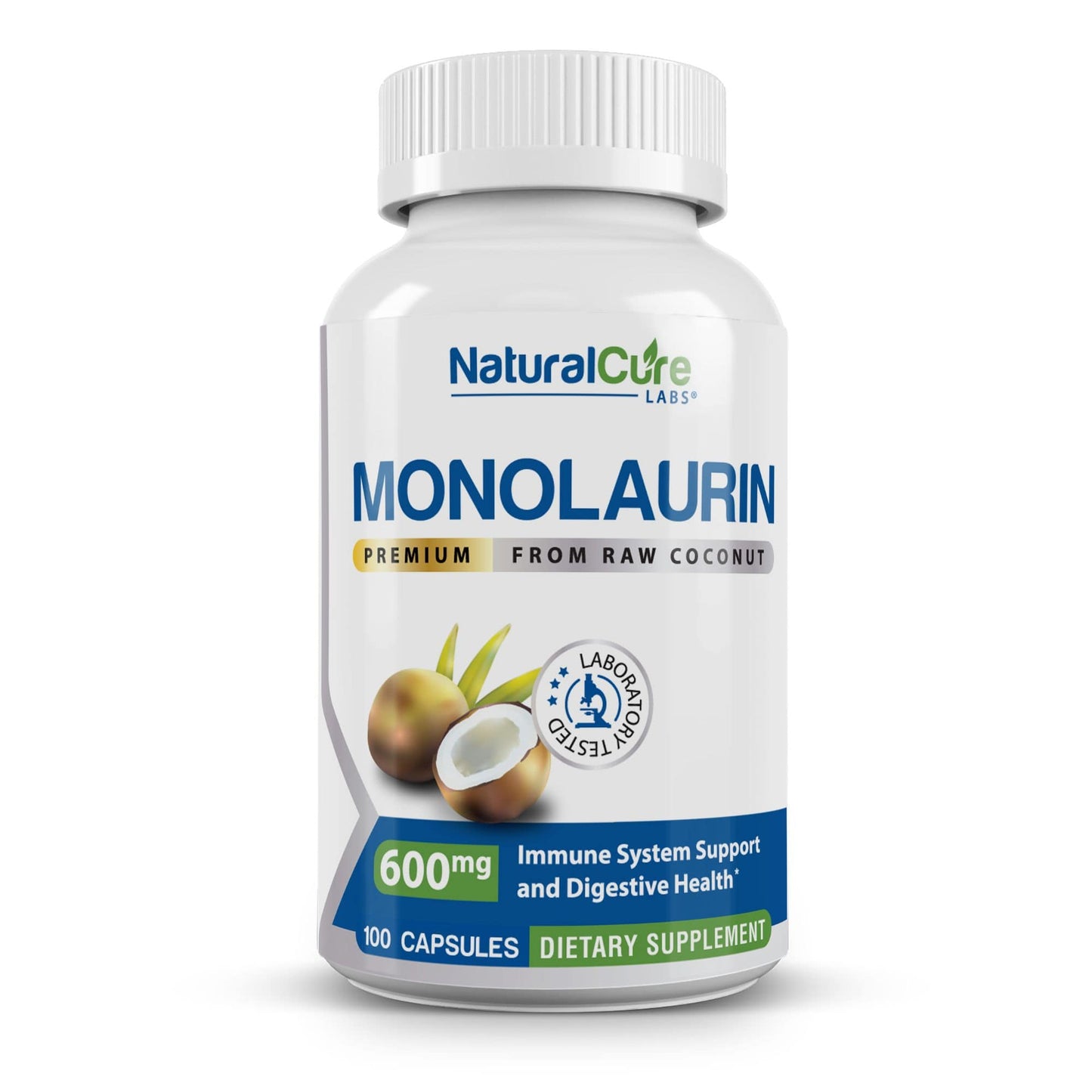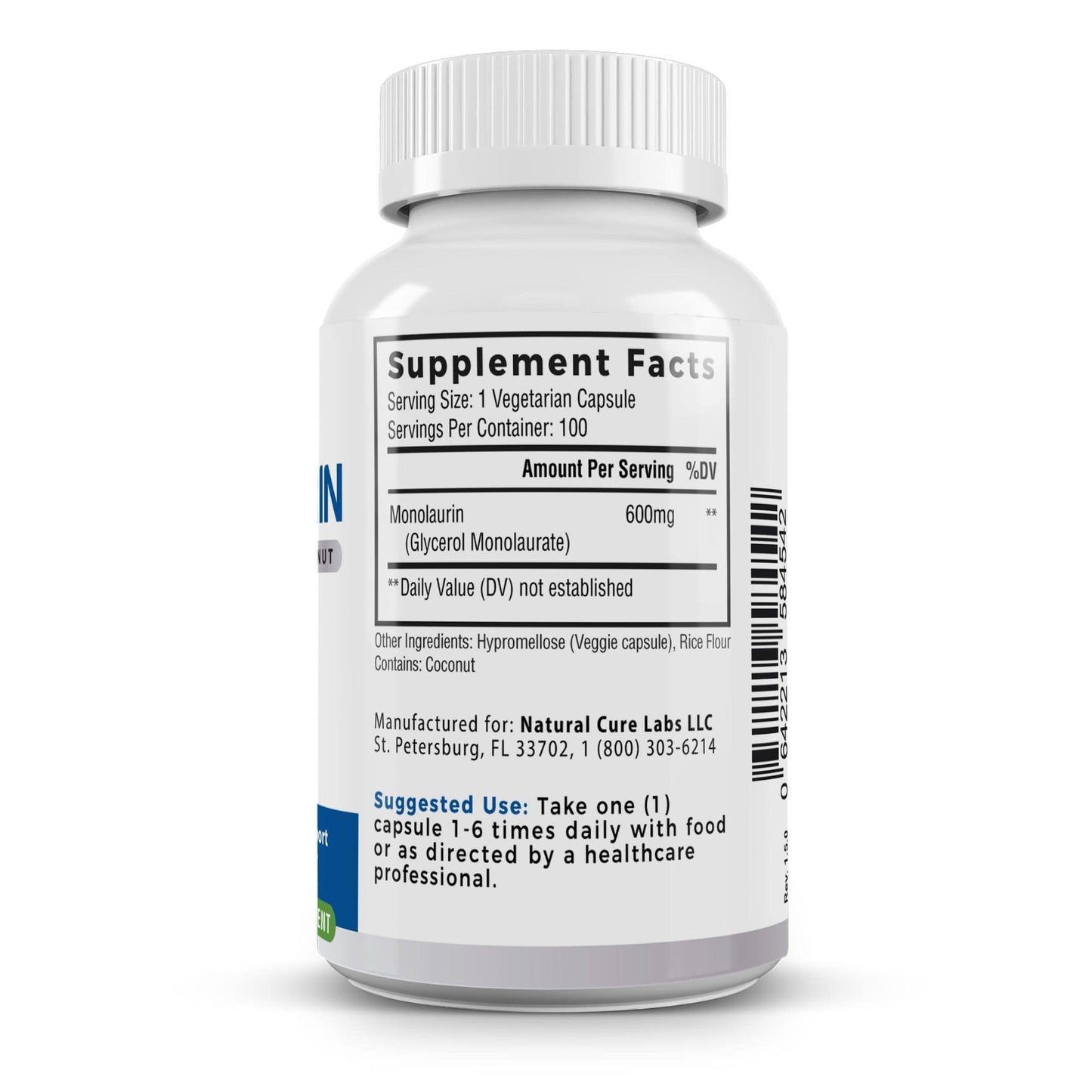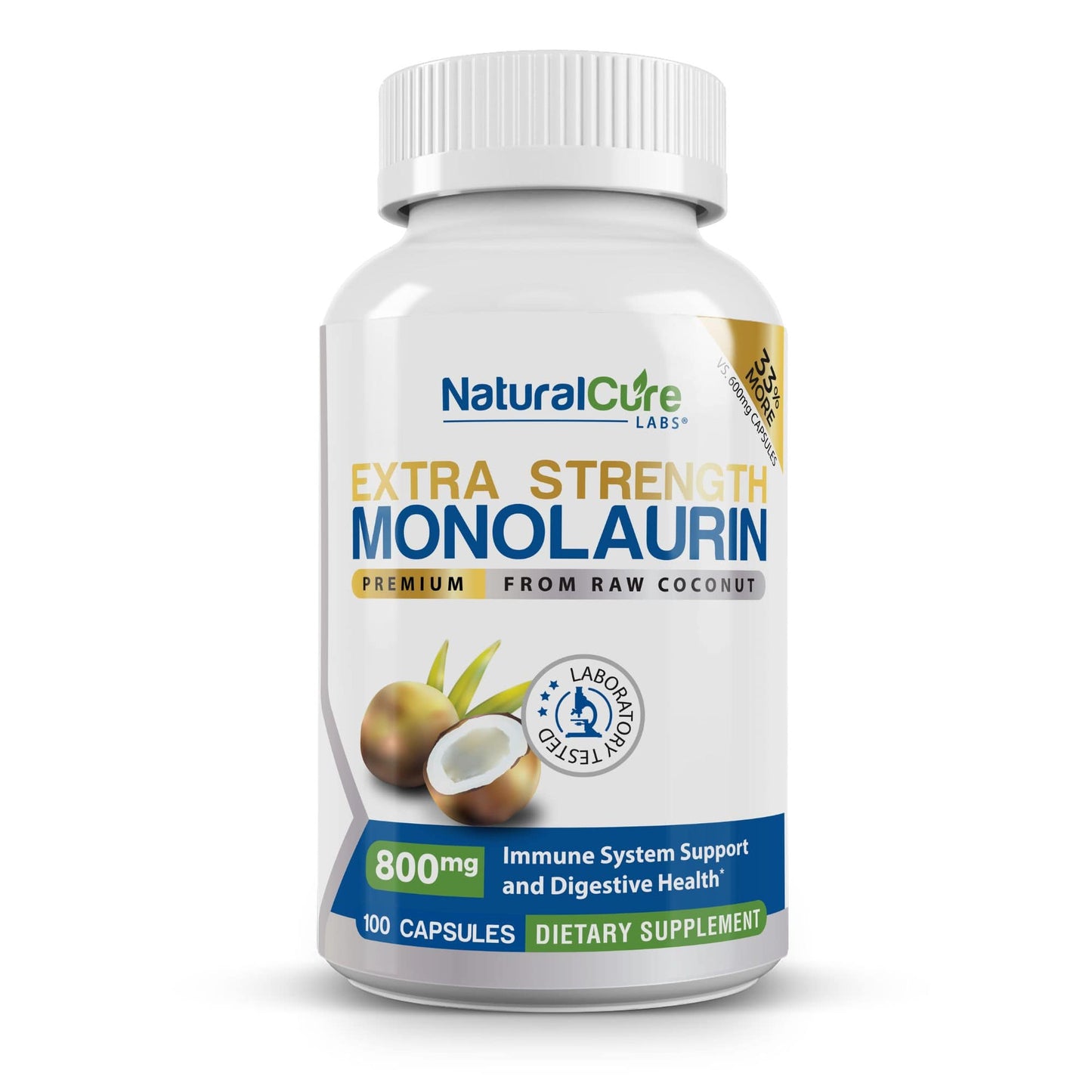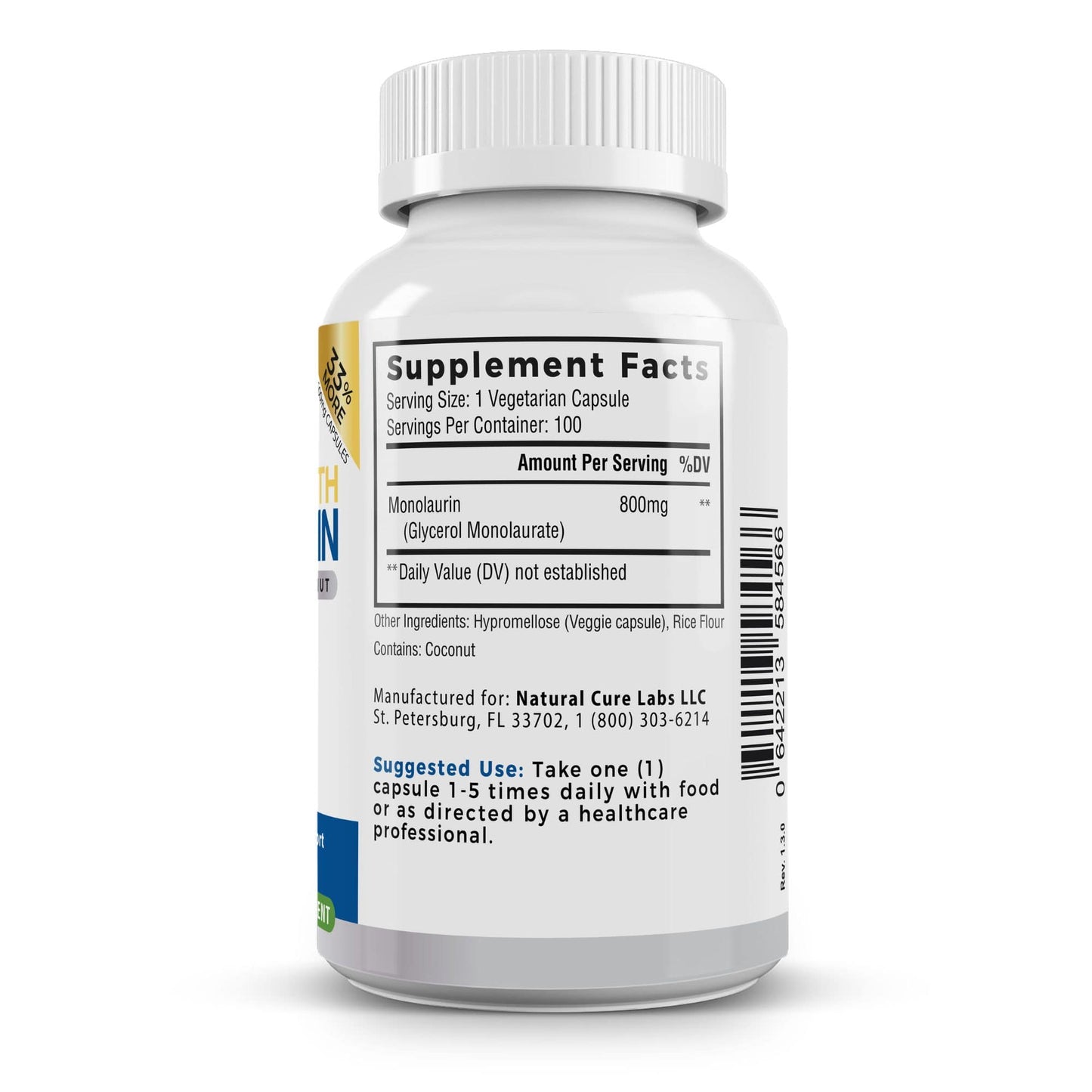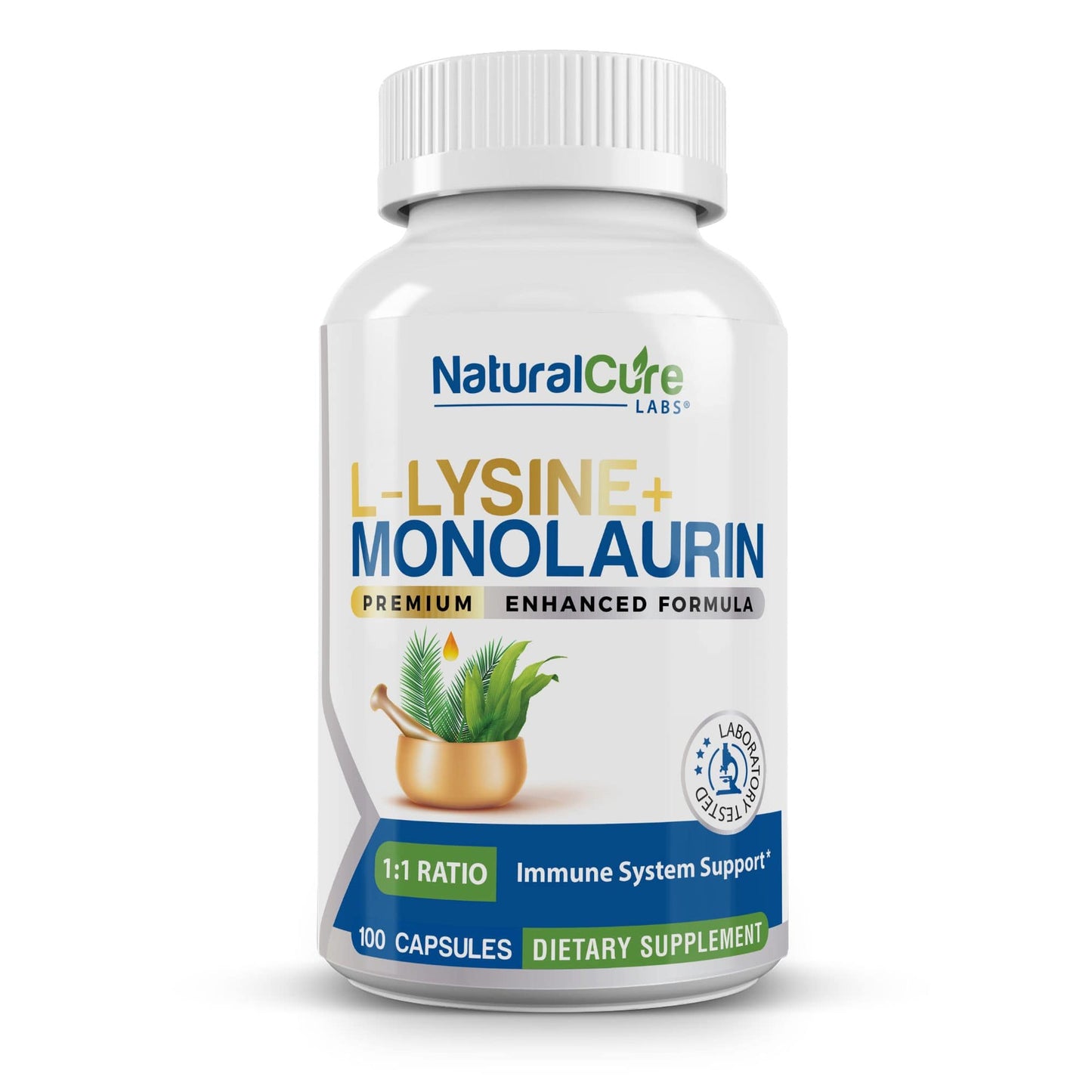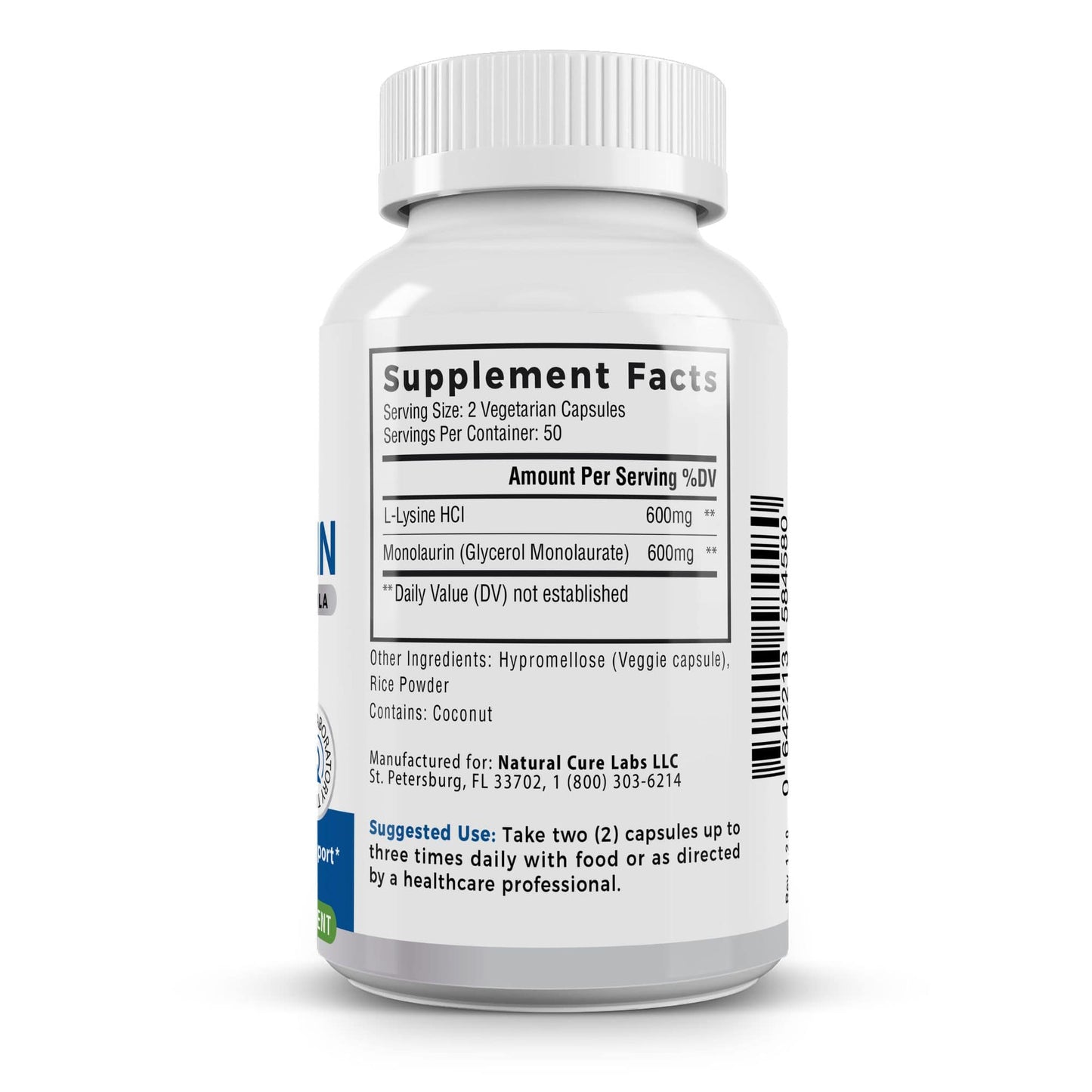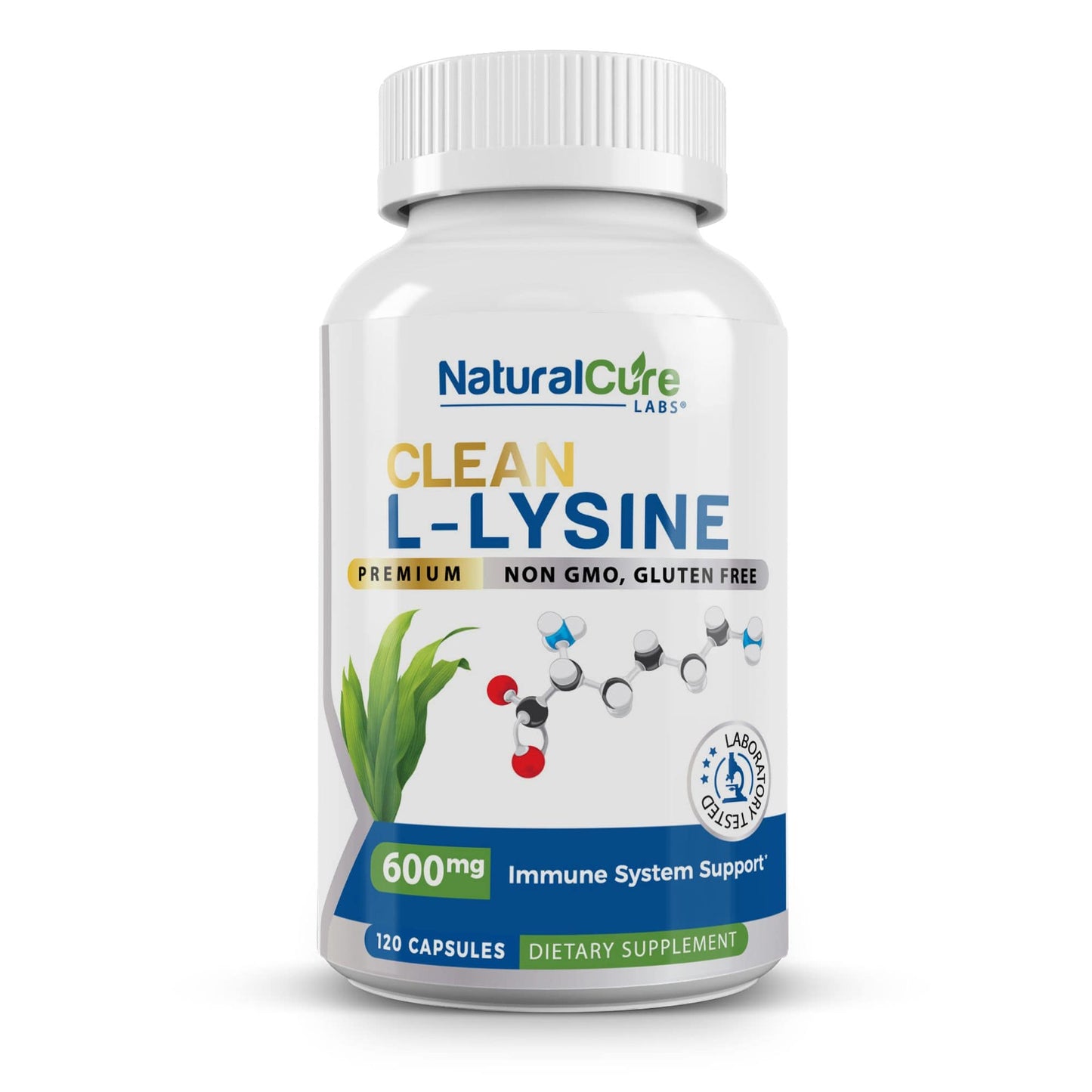
📝 Medically reviewed by Dr. Patricia Shelton
🔍 Last updated May 27, 2024
📚 14 citations
📖 7 minute read
About the Author:

Dr. Patricia Shelton, MD, has been a medical communicator and educator since 2014. She holds a Doctor of Medicine degree and a Bachelor's degree in Neuroscience, both from the University of Washington in Seattle.
--
Are you seeking a natural way to better your overall well-being? Lauric acid is an organic compound that has promising potential for human health. This medium-chain fatty acid may help support immune response and digestive function. ‡
Coconut oil, a popular kitchen staple, is a fantastic source of lauric acid. However, you don't need to use this edible oil in every meal to enjoy its potential benefits. Monolaurin, a derivative of lauric acid, is a common ingredient in dietary supplements like Natural Cure Labs' Premium Monolaurin. ‡
Jump To:
- What Is Lauric Acid?
- Where to Find Lauric Acid
- Lauric Acid for Health
- How to Use Lauric Acid
- References
Keep reading to learn more about this medium-chain saturated fatty acid.
See Related: How To Improve Your Gut Health, According To Research
What Is Lauric Acid?
Lauric acid is an organic compound found in coconut oil, breast milk, and palm kernel oil. A great source of lauric acid is coconut oil, which is 52% to 85% saturated fatty acids. ⁵ Lauric acid, along with its derivative monolaurin, accounts for 50% of the total fat in coconut oil. ¹
The chemical name of lauric acid is dodecanoic acid, with the molecular formula C12H24O2. Lauric acid belongs to a category known as medium-chain fatty acids (MCFAs), which are components of medium-chain triglycerides (MCTs). ¹
Where to Find Lauric Acid
In nature, lauric acid is not particularly common. Though coconut oil is a fantastic source of lauric acid, regularly eating meals with coconut oil may increase levels of low-density lipoprotein (LDL), also known as "bad" cholesterol. ⁵

Natural Sources of This Medium-Chain Fatty Acid
Lauric acid is also found in palm kernel oil, which, like coconut oil, contains a high percentage of lauric acid and other saturated fats. However, unlike coconut oil, the production of palm kernel oil is linked with negative environmental impacts, such as deforestation in sensitive environments, leading to the displacement of endangered species like the orangutan.
Lauric acid is also found in some plant and animal fats, though in considerably smaller doses. ¹
Additionally, lauric acid is a prevalent component in human milk - making up around 4-6% of breast milk fat. ¹
Lauric acid can be extracted from coconut oil in laboratories and processed into a standardized and more accessible form called “monolaurin” - a compound more readily digested and usable for human consumption. Monolaurin has been used in food and cosmetic production for years but has more recently been offered as a dietary supplement due to its many potential health benefits. ‡
Monolaurin, the subject of many studies related to health and wellness, is the primary ingredient in Natural Cure Labs' Premium Monolaurin capsules. These supplements contain 1,200 mg of glycerol monolaurate from lauric acid in every two capsule serving.
Bonus: What Does It Mean To Have A 'Clean Label'?

Lauric Acid for Health
Some research shows that lauric acid may increase high-density lipoprotein (HDL), also known as "good cholesterol." ² HDL is made up of lipids and proteins that transport fats throughout the body. Lauric acid may support heart health by helping your body reduce extra cholesterol. ³ ‡
Like other medium-chain fatty acids, lauric acid is easily absorbed and metabolized when ingested. Because of this, it’s generally used preferentially by the body for energy and is less likely to be stored as fat, although consuming large amounts of it could still lead to weight gain. ¹⁴
Is Lauric Acid Good for Gut Health?
Your stomach contains a complex network of bacteria that work together to keep you healthy. This community of microorganisms, known collectively as the gut microbiome, aids in biological processes such as digestion.
A diverse microbial ecosystem in the gut is essential for overall health and wellness. Your gut microbiome provides you with a number of health benefits, such as vitamin K synthesis and cellulose digestion.
Sometimes, when taking antibiotics to treat an infection, there are unintended consequences to the gut microbiome. Some antibiotics are considered “broad-spectrum,” meaning that they can treat a wide range of disease-causing bacteria, including Gram-positive and Gram-negative bacteria.
However, these medicines can also disrupt the balance of the gut microbiome by killing a wide range of bacteria, including beneficial microbes. This disruption is called microbial dysbiosis.
Some research suggests that lauric acid can help support a healthy gut microbiome by promoting the growth of "good" bacteria and reducing the number of "bad" bacteria. ⁴ ⁶ ⁷

Is Lauric Acid Good for Your Skin?
Coconut oil is a popular ingredient in many cosmetics and beauty products. When applied to the skin topically, coconut oil can have a moisturizing effect. ⁵
Lauric acid is often used in cosmetics as an emulsifier and texture enhancer. However, it is not generally recommended to use lauric acid directly on the skin. Coconut oil, which is rich in lauric acid along with other saturated fats, is a more suitable skincare ingredient. ⁵ ⁸ ⁹ ¹⁰
Lauric acid may possess certain characteristics that can support skin health. A 2009 study even found lauric acid to be more effective than benzoyl peroxide, a well-known acne treatment. ¹¹ ¹² ¹³
How to Use Lauric Acid
Lauric acid, when ingested, is converted into monolaurin. However, the rate at which the body converts lauric acid to monolaurin is unknown. Natural sources of lauric acid, like coconut oil, which contains around 50%, are easy to find and incorporate into everyday life.
Coconut oil can be infused in anything from a moisturizing body lotion to paleo banana bread. However, the most effective way to gain access to standardized lauric acid may be with dietary supplements like Monolaurin. ‡
Natural Cure Labs' Extra Strength Monolaurin contains organic compounds like glycerol monolaurate that help support immune health and digestive function. ‡
Keep Reading: The Positive Effects Of Monolaurin On Your Health
--
References
- Boateng, L., Ansong, R., Owusu, W. B., & Steiner-Asiedu, M. (2016). Coconut oil and palm oil's role in nutrition, health and national development: A review. Ghana medical journal, 50(3), 189–196.
- Mensink, R. P., Zock, P. L., Kester, A. D., & Katan, M. B. (2003.) Effects of dietary fatty acids and carbohydrates on the ratio of serum total to HDL cholesterol and on serum lipids and apolipoproteins: a meta-analysis of 60 controlled trials. The American Journal of Clinical Nutrition. Volume 77, Issue 5, May 2003, Pages 1146-1155. https://doi.org/10.1093/ajcn/77.5.1146
- Cleveland Clinic. (2023). HDL Cholesterol. Retrived from https://my.clevelandclinic.org/health/articles/24395-hdl-cholesterol on May 17, 2024.
- Zhang, Y. J., Li, S., Gan, R. Y., Zhou, T., Xu, D. P., & Li, H. B. (2015). Impacts of gut bacteria on human health and diseases. International journal of molecular sciences, 16(4), 7493–7519. https://doi.org/10.3390/ijms16047493
- WebMD. (2020). Coconut Oil - Uses, Side Effects, and More. Retrived from https://www.webmd.com/vitamins/ai/ingredientmono-1092/coconut-oil on May 17, 2024.
- Wu, Y., Li, Q., Liu, J., Liu, Y., Xu, Y., Zhang, R., Yu, Y., Wang, Y., & Yang, C. (2021). Integrating Serum Metabolome and Gut Microbiome to Evaluate the Benefits of Lauric Acid on Lipopolysaccharide- Challenged Broilers. Frontiers in immunology, 12, 759323. https://doi.org/10.3389/fimmu.2021.759323
- Matsue, M., Mori, Y., Nagase, S., Sugiyama, Y., Hirano, R., Ogai, K., Ogura, K., Kurihara, S., & Okamoto, S. (2019). Measuring the Antimicrobial Activity of Lauric Acid against Various Bacteria in Human Gut Microbiota Using a New Method. Cell transplantation, 28(12), 1528–1541. https://doi.org/10.1177/0963689719881366
- Varma, S. R., Sivaprakasam, T. O., Arumugam, I., Dilip, N., Raghuraman, M., Pavan, K. B., Rafiq, M., & Paramesh, R. (2018). In vitro anti-inflammatory and skin protective properties of Virgin coconut oil. Journal of traditional and complementary medicine, 9(1), 5–14. https://doi.org/10.1016/j.jtcme.2017.06.012
- Agero, A. L., & Verallo-Rowell, V. M. (2004). A randomized double-blind controlled trial comparing extra virgin coconut oil with mineral oil as a moisturizer for mild to moderate xerosis. Dermatitis : contact, atopic, occupational, drug, 15(3), 109–116. https://doi.org/10.2310/6620.2004.04006
- Aziz, A., Sarmidi, M. R., Aziz, R. A., & Noor, N. M. (2013). The Effect of Virgin Coconut Oil Loaded Solid Lipid Particles (VCO-SLPs) on Skin Hydration and Skin Elasticity. Jurnal Teknologi. 62. 39-43.
- Nakatsuji, T., Kao, M. C., Fang, J. Y., Zouboulis, C. C., Zhang, L., Gallo, R. L., & Huang, C. M. (2009). Antimicrobial property of lauric acid against Propionibacterium acnes: its therapeutic potential for inflammatory acne vulgaris. The Journal of investigative dermatology, 129(10), 2480–2488. https://doi.org/10.1038/jid.2009.93
- Tran, T. Q. M., Hsieh, M. F., Chang, K. L., Pho, Q. H., Nguyen, V. C., Cheng, C. Y., & Huang, C. M. Bactericidal Effect of Lauric Acid-Loaded PCL-PEG-PCL Nano-Sized Micelles on Skin Commensal Propionibacterium acnes. Polymers 2016, 8, 321. https://doi.org/10.3390/polym8090321
- Nakatsuji, T., Kao, M. C., Fang, J., Zouboulis, C. C., Zhang, L., Gallo, R. L., & Huang, C. (2009). Antimicrobial Property of Lauric Acid Against Propionibacterium Acnes: Its Therapeutic Potential for Inflammatory Acne Vulgaris. Journal of Investigative Dermatology. Vol. 129, Issue 10. P2480-2488
- Guo, J., Yan, E., He, L., Wang, Y., Xiang, Y., Zhang, P., Liu, X., & Yin, J. (2023). Dietary Supplementation with Lauric Acid Improves Aerobic Endurance in Sedentary Mice via Enhancing Fat Mobilization and Glyconeogenesis. The Journal of nutrition, 153(11), 3207–3219. https://doi.org/10.1016/j.tjnut.2023.09.006
‡ These statements have not been evaluated by the Food and Drug Administration. This product is not intended to diagnose, treat, cure, or prevent any disease.
--
Natural Cure Labs provides dietary supplements made from naturally derived ingredients. Our research-backed products contain premium botanicals and antioxidants that encourage healthy living and holistic wellness. Each high-quality product comes with a Clean Label that certifies our commitment to quality, transparency, and research. To stay connected and learn more, follow us on Facebook, Instagram, and TikTok.

